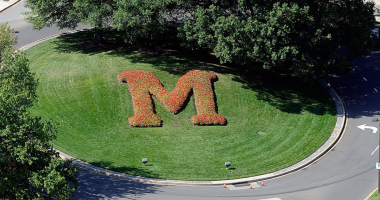Stay informed with free updates
Simply sign up to the War in Ukraine myFT Digest — delivered directly to your inbox.
The US is urging Europe to slash taxes on earnings from frozen Russian assets as part of a proposal to fund Ukraine by borrowing against future profits that it says will free up $50bn.
Daleep Singh, US deputy national security adviser for international economics, told the Financial Times that the G7 was discussing an idea from Washington to bring forward the value of interest income from the assets to get the cash to Kyiv as early as this summer.
Western allies immobilised €260bn of Russian central bank assets following Moscow’s invasion of Ukraine in February 2022 but have since been split over what to do with the frozen trove.
Washington favours confiscating the reserves in their entirety and handing them to Ukraine, but many European officials have warned such a move would breach international law, unsettle global markets and undermine the status of the euro.
Instead, the US proposed last week that tens of billions of euros could be raised for Ukraine by securing loans against future profits from the frozen assets. It is hoping to secure agreement from allies by the G7 leaders summit in Italy in June.
Singh said the move could involve a bond issue to the private sector or a loan by one or several G7 governments that would be repaid in the first instance by the interest income. He argued that the allies should aim to release about $50bn of funding for Ukraine via the proposal.
But to make the idea work, Singh told the FT it would be critical to “maximise the yearly interest income” from the assets.
By discussing where the money is reinvested and by changing the tax treatment of the income flows, the value of the interest payments could get up to €5bn a year, he said.
“Where the assets are invested matters but also the degree to which it is taxed,” he said. “We should maximise every euro from these immobilised reserves for the benefit of Ukraine.”
Lenders would need assurance they would get repaid, which could be achieved by setting aside a certain percentage of the reserves, he said.
But the US is still likely to face an uphill struggle in securing agreement from Europe for its latest proposal, with setting reserves aside as collateral likely to be controversial.
European Central Bank president Christine Lagarde said during a visit to Washington DC this week: “I have seen four different schemes or proposals to circumvent what many other jurists or lawyers — including in some administrations in this country — regard as a very serious legal obstacle that can be construed as a violation of the legal international order.”
The urgency of bringing forward extra cash has been heightened by a months-long stalemate in the US Congress over the aid package for Ukraine. The House of Representatives is expected to vote this weekend on sending $60bn in new military aid to Kyiv.
The bulk of Russian central bank assets — roughly €190bn — is held at Euroclear, a central securities depository based in Belgium. These have generated €3.85bn in profits after tax since Russia’s full-scale invasion.
Belgium has been taxing those profits at its regular 25 per cent corporate rate. Since the start of the war, it has collected €1.2bn, according to Euroclear’s financial statement, and is projected to earn another €1.7bn this year.
Waiving these taxes would require “significant legal changes to the corporation taxation system in Belgium”, said one person involved in the discussions, who thought it therefore unlikely to happen.
EU countries are attempting to agree a deal to hand about €3bn in profits to Kyiv this year, to be spent mostly for military purposes. But Singh said the drawback of making such yearly transfers is “it may be too little and too late to make an appreciable difference to Ukraine”.
Valdis Dombrovskis, executive vice-president of the European Commission, said he hoped decisions could be made on the topic “in the coming months”.
“This work should not be seen as something replacing financial support from international donors, but rather supplementing it,” he told the Financial Times.
Singh said that even if Congress approved the US package, that would not diminish the importance of the proposals around the Russian assets. “Mobilising the sovereign reserves would just reinforce the impact of the supplemental [aid package] rather than substituting for it,” he said.
“The numbers are important in terms of direct impact and also the signal it would send to Putin that he cannot outlast us.”
Read More: World News | Entertainment News | Celeb News
FT










